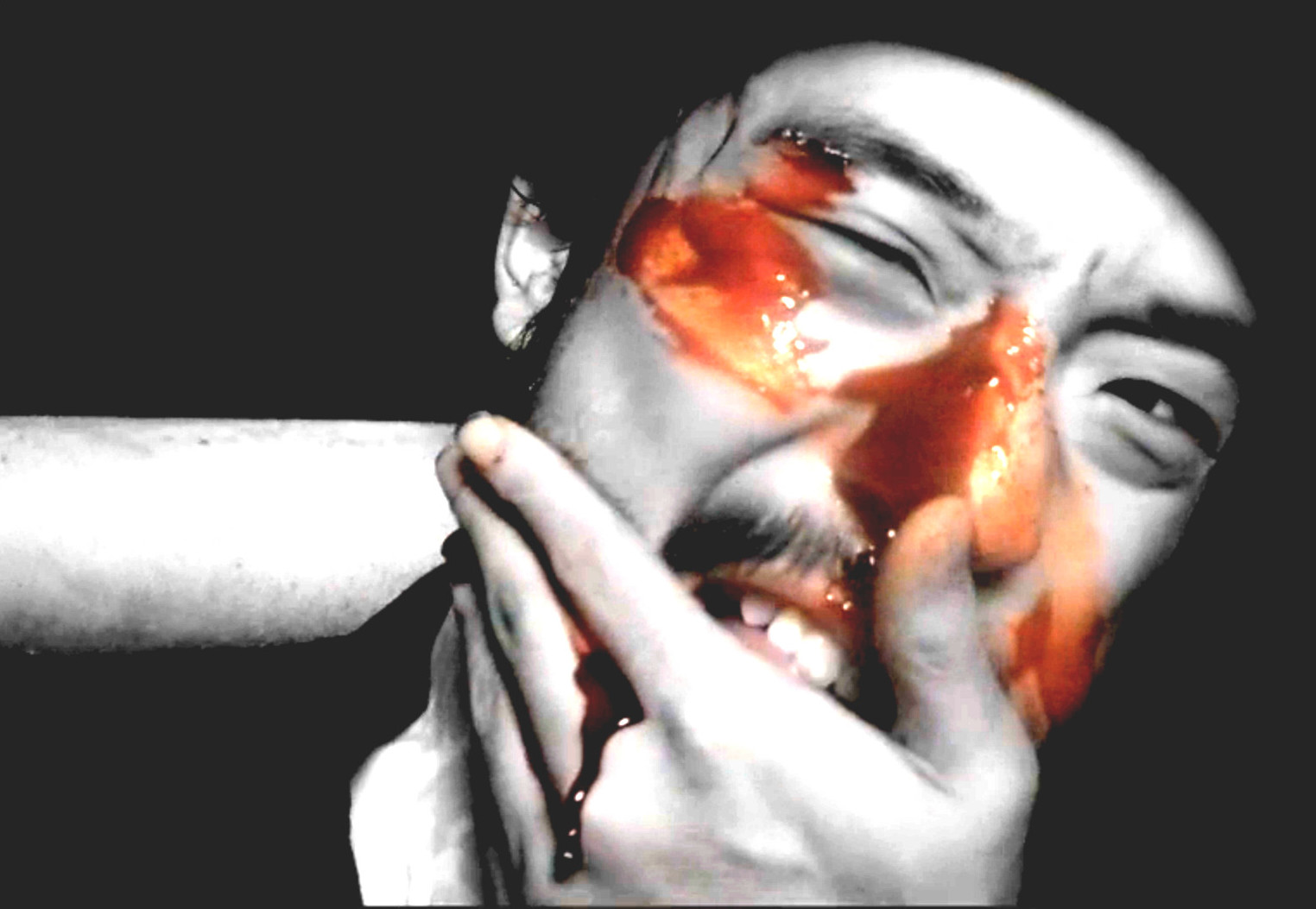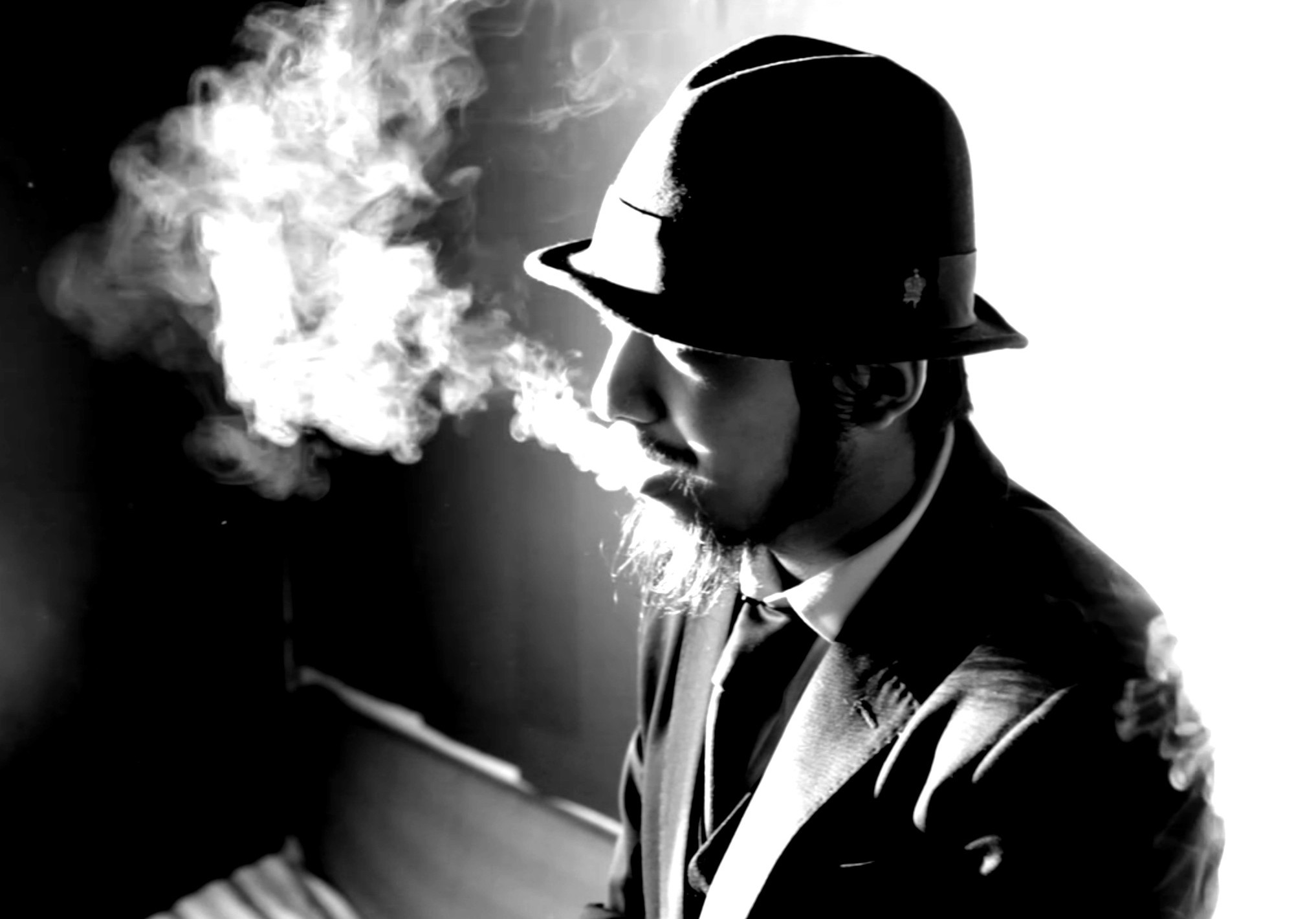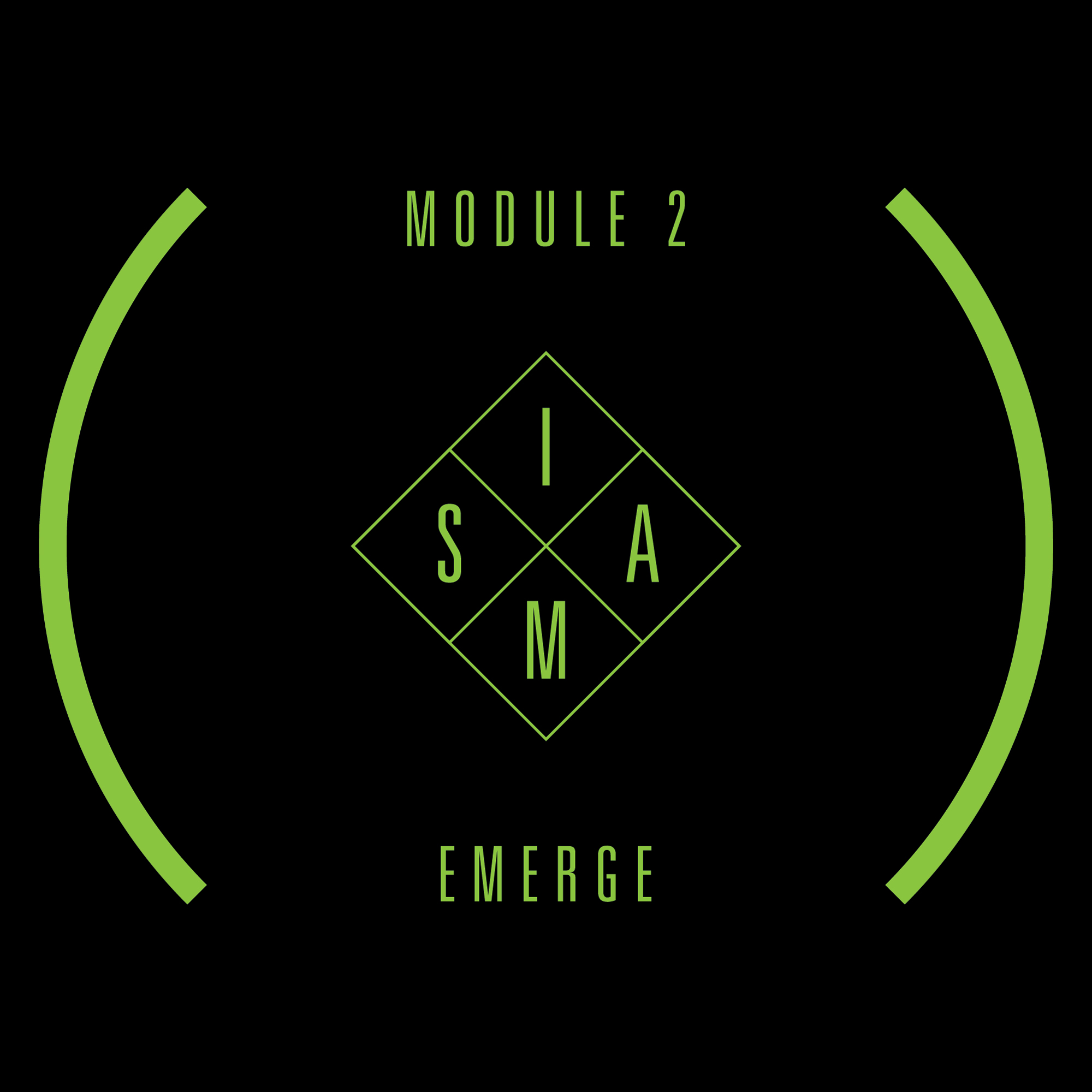采访:X is Y 乐队 Interview
By Josh, 2010年 11月 9日
《看中文采访》
Slow-burning Shanghai math-rock trio X is Y is coming to Beijing. I asked guitarist Guillaume, bassist Yajing and drummer Fabien a few questions about their sound, their background, and their thoughts on BJ and SH respectively. Read up, download their new LP and catch them this weekend at Yugong Yishan and D-22.

Friday, 12 November @ Yugong Yishan
[+] 豆瓣页面 douban event page
~ X is Y
~ CAssette
~ Amazing Insurance Salesmen
~ Streets Kill Strange Animals
~ Yantiao
9pm start. 50元/30元 advance
Saturday, 13 November @ D-22
[+] 豆瓣页面 douban event page
~ X is Y
~ Maze
~ Metoo
~ The Flying Mantas
10pm start. 40元/30元 students
pangbianr: Basics: How long have you been in China/Shanghai? When did you come together as a band? How did you get the name?
Fabien: We all have different stories here. Yajing is Shanghainese, I’ve been here for 5 years and Guillaume just arrived a year ago. G and I met through Myspace and started as two-piece in early 2010 playing songs he wrote back in the day in France.
Yajing: I used to play with G in another band, and he asked me to join and play bass with X is Y in July.
Guillaume: About the name, I wanted something which sounded pretty cold, which would evoke an emotionless post traumatic state. That’s also the feeling I wanted the record to convey. I found out later that it was also a movie by Richard Kern which is a pretty cool reference.
pbr: I’ve heard about a lot of free DIY releases coming out of Shanghai lately, especially through the QU records/Indie Everything grapevine. You are also offering your new record as a free download. Are you self-releasing the cd? What factors do you think have contributed to this recent spike in Shanghai DIY music?
F: I think every new band trying to spread its sound has to go through the demo process. It’s just faster to record and put it online for free these days. We actually don’t have physical copies of our album! Very few bands can afford to throw in enough cash not only to record in a studio but also to get CDs pressed. And even if they do, they usually don’t see that money back anyways.
On the other hand Shanghai’s labels are just something new; it’s nothing like Beijing’s at the moment. The first ones were focusing mostly on pop music acts that would look good amongst students and in the media. Only Miniless is trying to develop more artistic-oriented/experimental bands, even though they were originally based in Hefei. Newcomer Qu Records is trying to push some quality indie bands that are active on the scene and it’s a good thing too.
pbr: To my ear you seem more like a band from Dalian than a band from Shanghai. You mix math-rock elements with more lush melodic passages, but also throw in some heavier drum/guitar combos (like in the intro to Samold) that wouldn’t sound out of place in a Hüsker Dü song. What are your influences? How do you feel your band fits into the broader spectrum of the SH music scene?
G: The influences you could recognize on the record are Lou Barlow, Julie Doiron, Shannon Wright, This Heat, Shellac and Codeine. It’s basically a mix of folk, slow core and noise/math rock. We are actually slowly getting influenced by the shanghai scene, trying to play more straight forward songs which are easier to get into for people watching us live.
F: Shanghai people are used to go to shows where bands play very various styles, so we feel perfectly integrated to the scene in that few other bands have a similar sound. Thanks for the Dalian tip though, maybe we’ll try to go there sometime!
pbr: Speaking of music scenes, have you ever played in Beijing before? If so, how would you compare BJ with SH? If not, what are your expectations coming here for the first time?
F: Playing in Beijing is really exciting. I’ve been there a few times with The Rogue Transmission then The Fever Machine, and it always left me with a good impression. There is such a big pool of bands that it’s also where you can find the most solid bands in China. Shanghai doesn’t get so many bands or venues to host shows, but in that way it ensures you get a good attendance. You can never really know what to expect when going to Beijing unless you’re strongly supported by local promoters and a massively recognized band. This time we basically tried to contact bands we played with or met in Shanghai like CAssette or Maze.
G: It will be my first time playing in Beijing. I hope Beijing music fans will love the show. I’m impatient to have good chats about music with talented musicians from there.
Y: It will be my first time in Beijing. I heard BeiJing live shows are pretty different from those in Shanghai. I guess I’ll be able to tell the difference after our two shows. I’ll stay in Beijing to visit some famous touristic spots. Then I’ll go to Tianjin to spend a few days.
pbr: I’m always interested in the linguistic elements of bands. X is Y is a Shanghai-based band with a French lead vocalist yet it seems most of your lyrics are in English. One Chinese vocalist we’ve interviewed before who also sings mostly in English said it’s because he feels he can express himself more deftly in a second language. Do you have any thoughts on why English seems to be a kind of lingua franca for a lot of current Chinese indie bands?
G: In English, You can express ideas in a very concise way. I think it fits rock music very well. Most of the bands I’m listening to sing in English, so it feels more natural to use English too. I guess rock musicians in China follow the same process.
I actually also like bands who sing in Chinese like P.K.14. I recently decided to experiment more with my mother tongue too. I’m currently working on new songs in French. We’ll see out it goes out.
F: Maybe we ought to write a song in Chinese soon!
Y: I’m currently working on writing Chinese lyrics for the songs. I think lots of people will be interested in hearing foreigners singing in Chinese.
pbr: To someone (like me) who has never experienced the Shanghai scene, can you give 3 quick highlights? Could be bands, venues, labels, anything that will compel someone in Beijing to get on a train and come check it out…
G: To my mind, Dan of The Fever Machine is always putting together amazing shows at YuYinTang featuring bands like Boys Climbing Ropes, Duck Fight Goose, Pairs or Rainbow Danger Club. If you want a good idea of what the best Shanghainese bands sound like, it’s worth the trip.
F: 3 highlights for Beijingers? Yuyintang. Bigger Mao Livehouse. Cheaper cab rides!
Y: Yuyintang, Top Floor Circus and Sonnet. Top Floor Circus published new songs on their Douban in November. They are very appreciated by the Shanghainese crowd as they sing in Shanghainese. They really capture the Shanghainese’s everyday life in their lyrics. Sonnet started a really cool label called ZhuLuFengHe. They are promoting lots of Shanghainese bands and also some new folk singers.
上海的X is Y乐队会这个周末来北京。我问他们一些个问题。看采访,试听他们新的唱片,然后去看他们在愚公移山和D-22的演出:
11月12日(周五) @ 愚公移山
[+] 豆瓣页面 douban event page
~ X is Y
~ CAssette
~ 保险超人乐队
~ 街道杀死奇怪动物
~ Yantiao
9点开始. 50元/30元(预售)
11月13日(周六)@ D-22
[+] 豆瓣页面 douban event page
~ X is Y
~ 迷宫
~ 迷途
~ The Flying Mantas
10点开始. 40元/30元(学生)
pangbianr: 你们在上海/中国有多久了?什么时候开始在一起玩音乐?乐队名字有何来历?
Fabien: 我在上海五年了, 雅菁是上海人, G在上海有一年多了。今年年初的时候, 我和G在MySpace上认识并且两人开始玩一些G之前在法国写的歌。
Yajing:之前我和G在另外一个乐队玩,今年七月他们的贝司手因事退出,所以我加入了XisY。
Guillaume: 关于乐队名字,我想要那种内心的寒冷, 如同狂欢后情绪被全部抽空的感觉。这也是我想通过歌曲来传达的情绪。之后我发现这同样是Richard Kern一部电影的名字,给我作了一个很好的参考。
pbr: 我听说最近在上海有很多以DIY的形式发行唱片, 如区唱片/ Indie Everything. 你们同时也免费提供全新的录音下载和实体CD.你们是自己发行这张唱片吗?最近上海的独立音乐发展也很迅速,你认为是什么样原因促使的?
F: 我觉得每个新乐队都会先出DEMO,因为录DEMO相对比较快然后免费贴在网上给大家试听看看反响如何。我们其实还没有自己的实体专辑,这需要足够的资金去录音室录制和后期制作,所以少数的乐队会这样做而且都不能期望通过卖专辑来收回本金。
相对北京来说,上海的那些独立厂牌还很新,他们会主要集中在玩流行音乐来吸引学生和媒体。 只有Miniless这个厂牌在尝试发展更多的亚洲艺术性和实验性的乐队,不过他们最初是在合肥创立的。最新的一个厂牌叫做“区”,在尝试推出一些活跃在舞台上的独立乐队,期待他们有好发展。
pbr: 对我来说,你们听起来比较像是来自大连的乐队,跟上海的风气不太象。你们融合Math-Rock的音乐风格以及丰富的旋律段落,但是也运用沉重的鼓击和复合的吉他演奏(比如曲目Samold的开头),听起来也像是Hüsker Dü乐队的一些作品,你们主要受哪些音乐影响?你们觉得乐队适应在上海如此的音乐场景吗?
G: 主要受Lou Barlow, Julie Doiron, Shannon Wright, This Heat, Shellac和Codeine的影响比较多。 基本上是民谣歌曲的重新编曲混音,慢核和噪音/数字摇滚。我们慢慢在受上海现场演出的影响,尝试去玩一些能让观众简单理解和更直面的演出。
F: 在上海的朋友习惯去看一些不同风格乐队的演出, 所以我们更趋向于把音乐和舞台效果结合在一起来区别于其他那些有着相似旋律的乐队。多谢大连的风气,也许我们会尝试去那里看看!
pbr: 说到音乐场景,你们曾有在北京表演吗?如果有表演过,你觉得上海和北京有什么不一样;如果没有,那么你对第一次来北京表演有什么期望?
F:去北京演出是一件很让人兴奋的事情。我以前在流氓广播的时候去过好几次,发烧机也有去那里演出,北京给我留下了非常好的印象。北京有非常多的乐队,其中不乏很多都是现在中国的核心摇滚乐队。上海没有那么多乐队,也没有特别多的场地来主办现场演出,不过选择少了反而会让人更坚定要去看演出吧。 除非是有强力的主办方赞助或是有知名的乐队跟你同场演出,不然我们不会去北京吧,哈哈。这次我们基本上都是去联系我们在上海看过或是同台过的北京乐队,像是Cassette和迷宫。
G:这是我第一次去北京演出。我希望北京的乐迷们会喜欢我们的演出,并且迫不及待的想要与当地的乐队聊聊音乐。
Y: 这是我第一次去北京,他们说北京的现场与上海很不一样,所以这次自己可以亲自体验到不同之处。演出结束后我会继续留在北京然后去天津旅游一下。
pbr: 我向来对一些乐队语言的元素运用创作比较感兴趣,X is Y是一支在上海的乐队,然而主唱是来自法国,但很多时候你们的歌词是英文,以及另一位主唱(上次我们见面时聊过)他更多也是用英文歌唱,他说因为运用第二语言更能准确的表达自己。对于中国现在许多的一些独立乐队,你觉得是什么原因令英文创作好像成为了 ”通用语言“?
G: 用英文的话,你可以用非常简洁的方式表达出自己,我觉得这样很适合摇滚。我听的许多乐队都是唱英文歌,无关国籍,所以我觉得用英文会相对自然一点。许多现在的中国摇滚乐队也是如此。我也听中国的P.K.14, 他们唱中文歌。最近我打算去用母语来实验创作,所以在写一些法语歌,看看效果如何。
F:也许我们会写一首中文歌!
Y: 现在在尝试写一些中文的歌词,外国人唱中文歌会很让人期待呢。
pbr: 对于一些从没有体验上海音乐场景的朋友来说(比如我),挑选三个你认为重要的,可以是乐队,场地,厂牌等,这也使得在北京的朋友能获得一些在上海的讯息。
G:在我看来,发烧机的Dan总是能聚集起许多像是男孩爬绳,鸭打鹅,对儿或是彩虹危险部落这些有着自己鲜明特色的乐队。如果你想要来听听什么是上海最好的乐队,你可以过来玩一下。
F:要三个吗?场地的话是育音堂和上海MAO,这两个地方离得很近,打车很方便。
Y:育音堂,顶楼马戏团和十四行诗。顶楼马戏团是上海的本土乐队,他们在10月重新开始了新歌的创作,大多上海人都很喜欢他们因为他们的歌用上海话唱,歌词也非常贴近现在上海人的生活状态。十四行诗有自己的独立厂牌竹露风荷,旗下有许多上海的本土乐队和一些新进的民谣歌手。










solid band. x is y = good times.